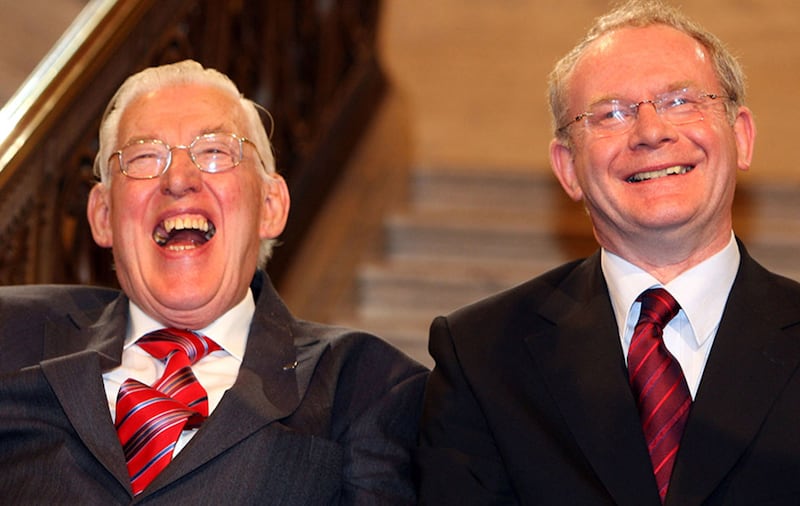At the time of writing the DUP leadership are having a date with destiny. The outcome matters little, as the die is well and truly cast. Northern Ireland, as viewed through an ‘Orange’ lens, is no more.
There is only one right outcome and that’s to get back into Stormont and sustain the power-sharing elements of the Good Friday Agreement. Any other decision will only serve to fast-track the decline of political unionism.
Whilst some seem to struggle with the concept of a nationalist first minister, the reality is that no matter who is first minister, it’s the actual continued existence of an administration at Stormont which is the lifeline to and guarantee for the future of unionism. Anyone suggesting otherwise is about as useful to political commentary as an ashtray on a motorbike.
There is only one right outcome and that’s to get back into Stormont. Any other decision will only serve to fast-track the decline of political unionism
Political unionists threw away their opportunity to create an inclusive Northern Ireland in the 1920s; they went on to miss the boat on the issue of reform in the 1960s and failed to grasp the opportunity for a shared future in 1974 with Sunningdale. Indeed they have missed more opportunities than Grant Shapps has had ministerial posts.
On a recent BBC Talkback panel with Mark Simpson, two of my esteemed Irish News colleagues said “Sunningdale was too much, too soon”.
In truth, as history demonstrates, if political progress was to depend on the snail’s pace movement within the political leadership of unionism, we would be making dry stone walls for eternity.
The late Seamus Mallon was right – the Good Friday Agreement was “Sunningdale for slow learners”.

It was also the last chance saloon for lasting political consensus, as all the ingredient parts of internal power-sharing and north-south and east-west relationships guaranteed the constitutional position of Northern Ireland, until and unless the people voted to change it. Nothing, including Brexit, has changed that.
Fringe and extreme loyalists have spent the last seven years duping most of mainstream unionism into a false belief that unionist hegemony and ill-conceived supremacist cultural nonsense can be sustained on hyperbole, hatred and redundant rhetoric . An unholy cohort of eccentric British illiberal imperialists, washed-up has-beens, belligerent bigots and digital marionettes have been peddling snake oil in a form of non-existent political purism to maintain a semblance of relevance.

The great fraud of Ulster was, of course, Brexit. Its proponents saw in Brexit an opportunity to break the fragile equilibrium between two communities not quite emerged from a society in conflict. These human wrecking balls revel in the damage they have so far inflicted on Northern Ireland and its people. Some of their spokespeople would go further and pull down power-sharing. But power-sharing will prove more enduring than the bile these marginal minions hurl from keyboards in their bedroom.
The Good Friday Agreement architecture has been clunky but changes have been made – especially at St Andrews, which made it even more unsettling and unsightly. Future adjustments must not lose the overall essence of the Good Friday Agreement. Accommodation of and cooperation between the two main traditions, based on mutual respect, is still the overriding imperative.

Some loyalists appear to be labouring under the fanciful notion that there’s some great emotional attachment from nationalists towards Stormont as an institution – there is not. Creating a more equitable, just and fairer society was the aim of all reasonable citizens with a conscience or sense of civic responsibility.
Nationalism is committed to power-sharing as a means to creating such a society for all the people. Power-sharing, in both principle and practice, will not be surrendered to baying voices of division and discord.
The current impasse is unsustainable, as those working in the public sector have had enough. The adults in the room need to stand up. As the Rolling Stones sang: “You can’t always get what you want”.
The downside is we can’t even get what we need.




